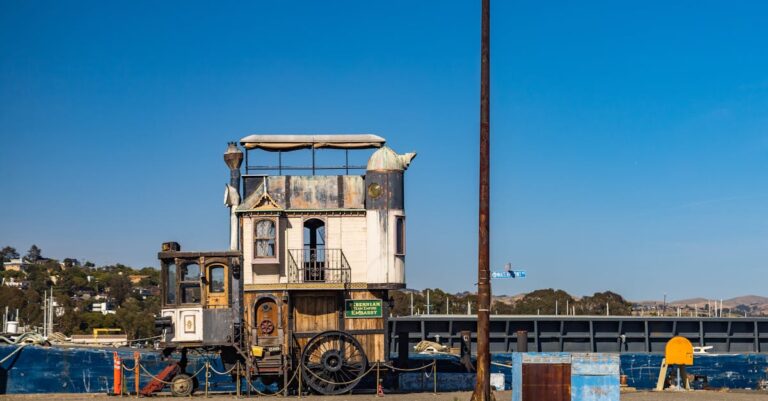
The first time Sarah Whitaker held a pamphlet printed with the words “No Taxation Without Representation,” the paper felt like a live thing in her hands, its edges sharp with possibility. It was 1765, and the air in Boston stank of salt and rebellion. She’d stolen the leaflet from her father’s shop that morning, slipping it into her apron as he argued with a customer about the new Stamp Act. The ink still smelled fresh—oil-based, bitter—as she folded it into a tight cylinder and pressed it into the palm of Thomas Reed, the dockworker who’d taken her in after her mother’s fever took her last summer.
“You sure about this?” Thomas asked, his voice low, his calloused fingers brushing hers. His eyes were the color of storm clouds, always scanning the street for redcoats or trouble. Sarah nodded, though her stomach churned. She’d never been part of anything bigger than the clatter of her father’s press or the hush of the shop after dark. But this—this was different. The pamphlet’s message pulsed in her veins: *We are the people.*
Her father found her that evening, standing in the alley behind the shop, the moon a sliver of silver above the rooftops. He grabbed her by the shoulders, his breath reeking of rye and frustration. “You think you’re helping?” he spat. “You’ll get us all hanged!” Sarah wrenched free, her heart hammering. She’d seen the way he’d sold their family’s name to the British, how he’d refused to print the rebels’ manifestos even when they offered him gold. But now, with the Stamp Act in place, his shop was a target. The thought of her father’s hands—his steady, sure hands that had printed thousands of bills and contracts—being bound in iron made her sick.
The next week, Sarah met Eli Kramer, a printer from New York who’d come to Boston with a suitcase full of paper and a look in his eye that said he’d seen too much. He found her at the docks, where she’d taken to handing out pamphlets to sailors and laborers. “You’re reckless,” he said, his voice rough but not unkind. “But recklessness is all we’ve got.” He showed her how to smuggle pages through the city, how to fold them into the bindings of books or hide them in the soles of shoes. “The Crown can’t print every lie,” he told her. “But they can burn every truth. So we make it hard for them to find it.”
By October, the tension in Boston was thick as fog. Sarah’s hands were raw from pressing paper, her throat sore from shouting the pamphlet’s message in the streets. She’d started a routine: early mornings at the shop, pretending to organize ledgers while slipping manifestos into customers’ hands. Afternoons at the docks, where she traded stories with sailors and listened to their tales of liberty and loss. Nights, she met Eli in the cellar of a tavern, where they printed under the glow of a single lamp. The smell of ink and sweat filled the air, mingling with the scent of whiskey and fear.
Then came the raid.
It was just after midnight when the soldiers stormed the shop. Sarah had been in the cellar, her fingers stained with ink, when she heard the crash of breaking glass. She froze, her breath catching in her throat. Footsteps echoed above, boots stomping over the floorboards. Eli’s voice was a low curse as he grabbed her arm. “We have to go,” he said, but Sarah shook her head. The pamphlets—her life’s work—were up there, on the shelves, waiting to be burned.
“I can’t,” she whispered. “They’ll destroy it all.” Eli’s grip tightened. “You’ll die for a few pages?” She didn’t answer. Instead, she ran, her boots slapping against the cellar floor as she climbed the stairs. The shop was in chaos: soldiers tearing down posters, smashing presses, dragging customers to their knees. Sarah’s father stood in the middle of it all, his face pale, his hands raised in surrender. She wanted to scream, to run to him, but something held her back. This was the moment she’d been waiting for—the moment when the truth would be set free, no matter the cost.
She grabbed a stack of pamphlets from the shelf and hurled them into the air. They fluttered like black birds, scattering across the room. The soldiers shouted, their voices drowned out by the crackle of flames as someone set fire to a pile of papers. Sarah’s chest hurt, but she kept throwing. The fire leapt higher, licking at the wooden beams, and for a moment, she saw her father’s face—shock, then sorrow—as the flames consumed everything they’d built.
When it was over, the shop was a ruin. The presses were smashed, the ink spilled across the floor like blood. Sarah stood in the wreckage, her hands trembling, as Eli pulled her into an alley. “You did it,” he said, but she didn’t feel triumphant. The cost was too high. Her father’s shop was gone, and with it, the last thread connecting her to the life she’d known.
In the weeks that followed, Sarah became a ghost in her own city. She moved between safe houses, passing messages and printing what little she could in hidden basements. The pamphlets spread like wildfire, their message echoing through the streets. But every time she saw a redcoat or heard the clatter of boots, her heart raced. The Crown would come for them all, she knew. But until then, she would keep printing, keep fighting, keep the truth alive—no matter the cost.
Years later, when Sarah looked back on that night, she would remember the fire not as a loss, but as a beginning. The ashes of her father’s shop had given birth to something new, something unbreakable. And though she’d lost everything, she’d gained a purpose that no amount of ink or fire could ever extinguish.


